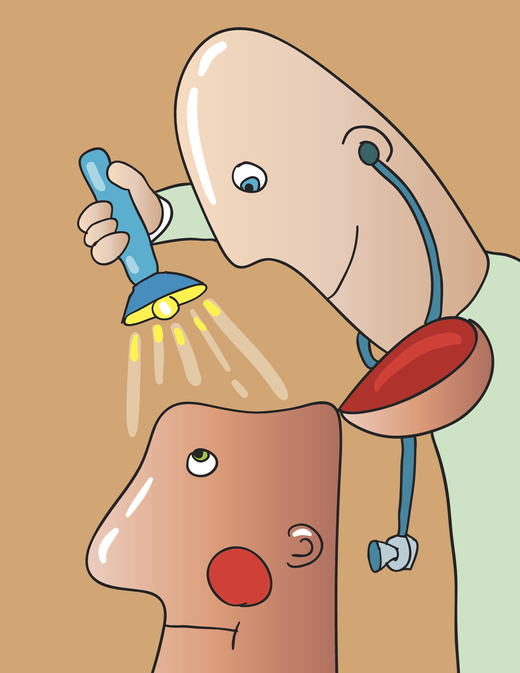May 2019
This year, the Brain Health Registry celebrates its five-year birthday! Since early 2014, the Brain Health Registry has worked hard to create an excellent online experience for our participants that uses cutting edge web-based research methods. It is our continued aim to accelerate brain health research! Today, we take a moment to look at how far we have come and how YOU, the participant, are central to our accomplishments.
The Brain Health Registry turns 5! And, learn about another opportunity for research participation below.

A young Japanese boy sits at office desk searching for successful ideas by using a mind reading helmet. He is working on ideas in the inner most parts of the brain. He is wearing a cardigan and bow tie.
- In our inaugural year, nearly 10,000 participants enrolled
- As of May 2019, over 62,000 participants have enrolled
- In October 2014 we began inviting participants to come back to BHR every six months to complete follow-up questionnaires and retake brain tests. Why is this important? It allows our researchers to study brain health changes over time. Click here to see if you are ready for your next return visit!
- An impressive 32,000 of our participants have returned at least once for a follow up visit, helping us to see trends in brain health that unfold slowly over years
Apart from our long-term data collection, another big accomplishment of the Brain Health Registry has been our referral programs, which refer interested participants to other research studies, including clinical trials. We have referred over 23,000 participants to other studies of brain health, aging, and dementia. If you are invited to these one of these programs, this is your opportunity to make an even greater contribution to scientific research!
Observational Study Needs Volunteers!
The “ADNI Study” (Alzheimer’s Disease Neuroimaging Initiative) is urgently looking for participants. The research study uses state-of-the-art imaging to monitor brain levels of two proteins—tau and amyloid—both of which are significant indicators of Alzheimer’s disease. Researchers also track cognitive function through computer tests at home, and occasional exams and tests in a doctor’s office. No medication is involved. Eligible participants:
Are between the ages of 55-90 and have memory concerns with or without a diagnosis of early AD (Alzheimer’s disease) or MCI (Mild Cognitive Impairment)
To learn more or to get started:
visit ADNI3.org





